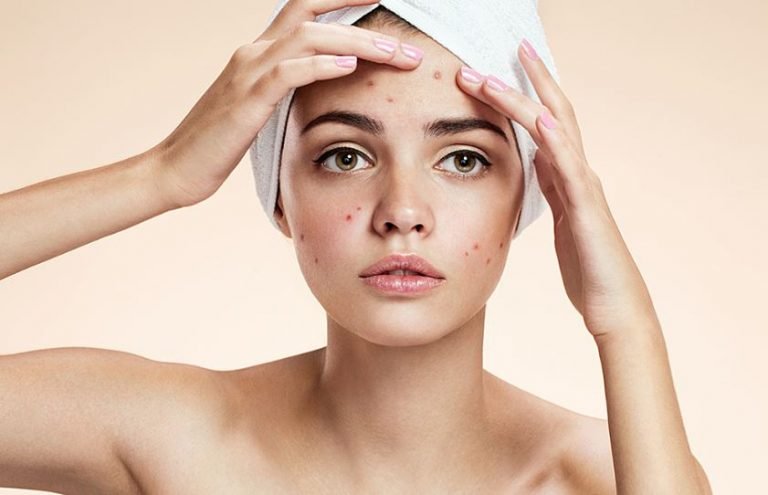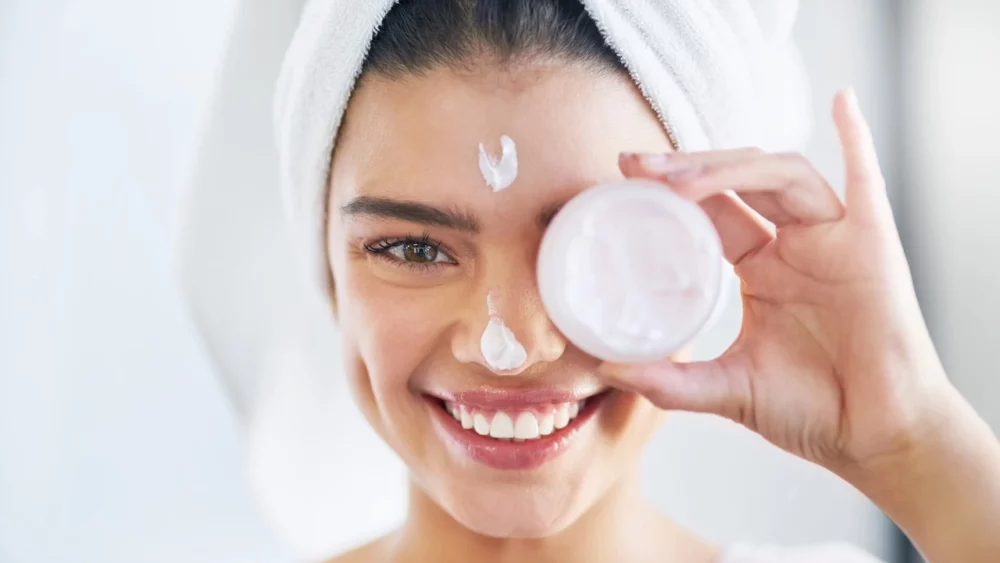Dealing with acne-prone skin can be challenging, but with the right practices and products, you can minimize breakouts and maintain a clear complexion. Whether you experience occasional pimples or persistent acne, developing a skincare routine tailored to your skin’s needs is crucial. Here, we’ll explore the best practices and recommended products for treating acne-prone skin.
1. Cleanse Gently, But Thoroughly
Keeping your skin clean is the first step in treating acne. However, harsh cleansers can strip your skin of its natural oils, leading to irritation and more breakouts. Opt for a gentle, non-comedogenic cleanser that removes dirt, oil, and makeup without over-drying the skin.
Cleansing Tips for Acne-Prone Skin:
- Use a sulfate-free cleanser that’s formulated for oily or acne-prone skin.
- Wash your face twice a day—morning and night—to keep pores clear.
- Avoid scrubbing the skin too harshly, which can lead to irritation.
Recommended Cleansers:
- CeraVe Foaming Facial Cleanser: Contains ceramides and niacinamide to soothe and protect the skin.
- La Roche-Posay Effaclar Purifying Foaming Gel: A gentle, oil-free cleanser ideal for acne-prone skin.
- Neutrogena Oil-Free Acne Wash: Formulated with salicylic acid to help treat and prevent breakouts.
2. Exfoliate Regularly
Exfoliating helps remove dead skin cells that can clog pores and cause acne. However, it’s important to choose the right type of exfoliant to avoid aggravating acne-prone skin. Chemical exfoliants, such as alpha-hydroxy acids (AHAs) and beta-hydroxy acids (BHAs), are often more effective and less irritating than physical scrubs.
Exfoliating Tips:
- Exfoliate 1-2 times per week to prevent clogged pores.
- Look for products with salicylic acid (BHA) or glycolic acid (AHA), which help dissolve dead skin cells and excess oil.
- Avoid abrasive scrubs that can cause microtears in the skin.
Recommended Exfoliants:
- Paula’s Choice Skin Perfecting 2% BHA Liquid Exfoliant: A gentle chemical exfoliant that unclogs pores and reduces redness.
- The Ordinary Glycolic Acid 7% Toning Solution: Helps improve skin texture and prevent clogged pores.
- Neutrogena Oil-Free Acne Stress Control Triple-Action Toner: Combines salicylic acid with soothing ingredients to help control acne.
3. Use Targeted Treatments
For persistent or severe acne, targeted treatments can be particularly effective. These treatments typically contain acne-fighting ingredients such as benzoyl peroxide, salicylic acid, or retinoids. Each of these ingredients works in different ways to address the root causes of acne, such as bacteria, excess oil, and clogged pores.
Key Acne-Fighting Ingredients:
- Salicylic Acid: A BHA that exfoliates inside the pores, helping to reduce blackheads and whiteheads.
- Benzoyl Peroxide: Kills acne-causing bacteria and reduces inflammation.
- Retinoids: Encourage skin cell turnover, preventing clogged pores and reducing the appearance of acne scars.
Recommended Spot Treatments:
- Differin Gel (Adapalene): A prescription-strength retinoid that reduces inflammation and prevents new acne from forming.
- La Roche-Posay Effaclar Duo Dual Action Acne Treatment: Contains benzoyl peroxide to treat active acne and prevent future breakouts.
- Mario Badescu Drying Lotion: Combines salicylic acid and sulfur to dry out and shrink pimples overnight.
4. Moisturize Daily
Even acne-prone skin needs moisture to maintain its barrier function and prevent overproduction of oil. The key is to choose a lightweight, oil-free moisturizer that won’t clog your pores. Hydrating the skin helps maintain balance and can even reduce excess oil production, which is a common cause of acne.
Moisturizer Tips:
- Look for non-comedogenic (won’t clog pores) and oil-free moisturizers.
- Opt for gel-based or water-based formulas if you have oily skin.
- Moisturize twice a day to keep your skin hydrated and balanced.
Recommended Moisturizers:
- Neutrogena Hydro Boost Water Gel: A lightweight, gel-based moisturizer with hyaluronic acid.
- CeraVe PM Facial Moisturizing Lotion: Contains niacinamide to calm irritation and ceramides to restore the skin barrier.
- La Roche-Posay Toleriane Double Repair Moisturizer: An oil-free, non-comedogenic moisturizer suitable for acne-prone skin.

5. Don’t Forget Sunscreen
Sunscreen is an essential part of any skincare routine, especially for acne-prone skin. Some acne treatments can make your skin more sensitive to the sun, leading to irritation and hyperpigmentation. Choose a non-comedogenic sunscreen that won’t clog your pores, and make sure to apply it every morning.
Sunscreen Tips:
- Use a broad-spectrum SPF 30 or higher to protect your skin from both UVA and UVB rays.
- Opt for oil-free, non-comedogenic sunscreens to avoid clogging pores.
- Apply sunscreen daily, even on cloudy days or when staying indoors.
Recommended Sunscreens:
- EltaMD UV Clear Broad-Spectrum SPF 46: A lightweight, oil-free formula with niacinamide and zinc oxide.
- Neutrogena Clear Face Break-Out Free SPF 55: Specifically designed for acne-prone skin.
- La Roche-Posay Anthelios Clear Skin Oil-Free Sunscreen SPF 60: A mattifying sunscreen ideal for oily and acne-prone skin.
6. Avoid Touching Your Face
Constantly touching your face can transfer bacteria, oil, and dirt from your hands to your skin, leading to breakouts. It’s important to resist the urge to touch or pick at your pimples, as this can cause further irritation, spread bacteria, and lead to scarring.
Best Practices to Prevent Breakouts:
- Keep your hands away from your face during the day.
- Clean your phone, pillowcases, and other items that come in contact with your skin regularly.
- Avoid picking or squeezing pimples, which can lead to scarring and infections.
7. See a Dermatologist
If over-the-counter treatments aren’t working, or if your acne is severe, it’s best to see a dermatologist. A dermatologist can prescribe stronger treatments, such as oral medications or prescription-strength topical products, and offer guidance on how to manage your skin effectively.



